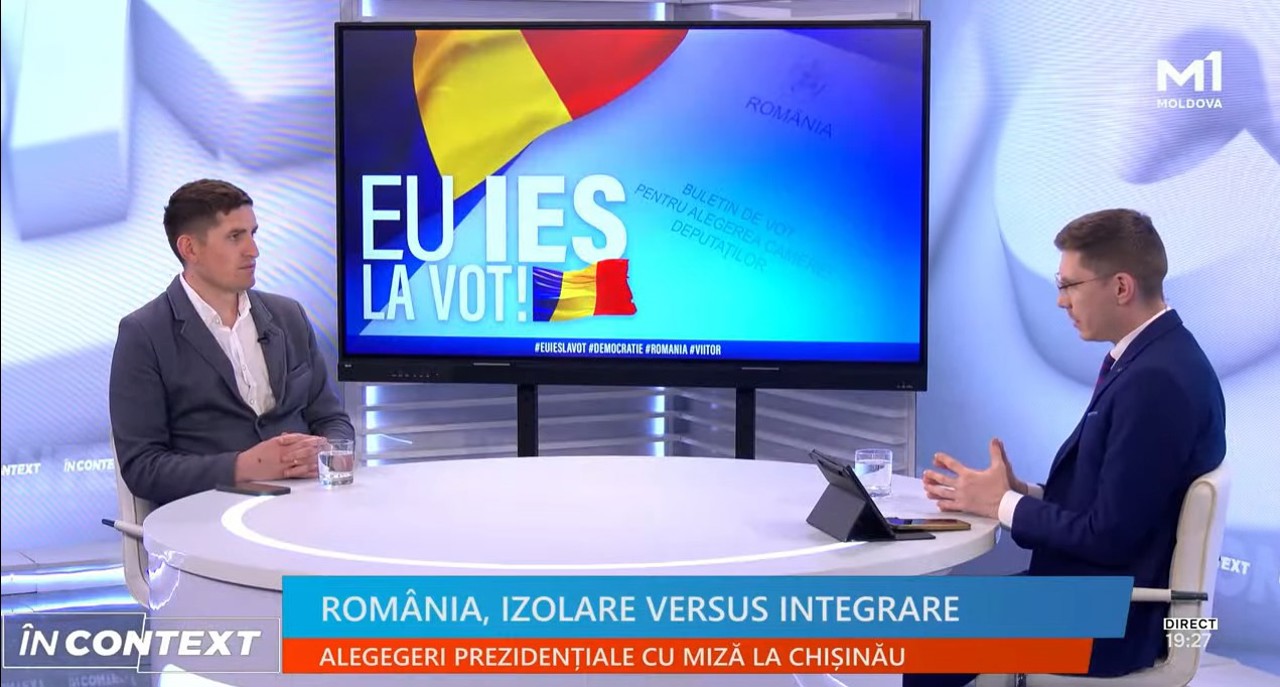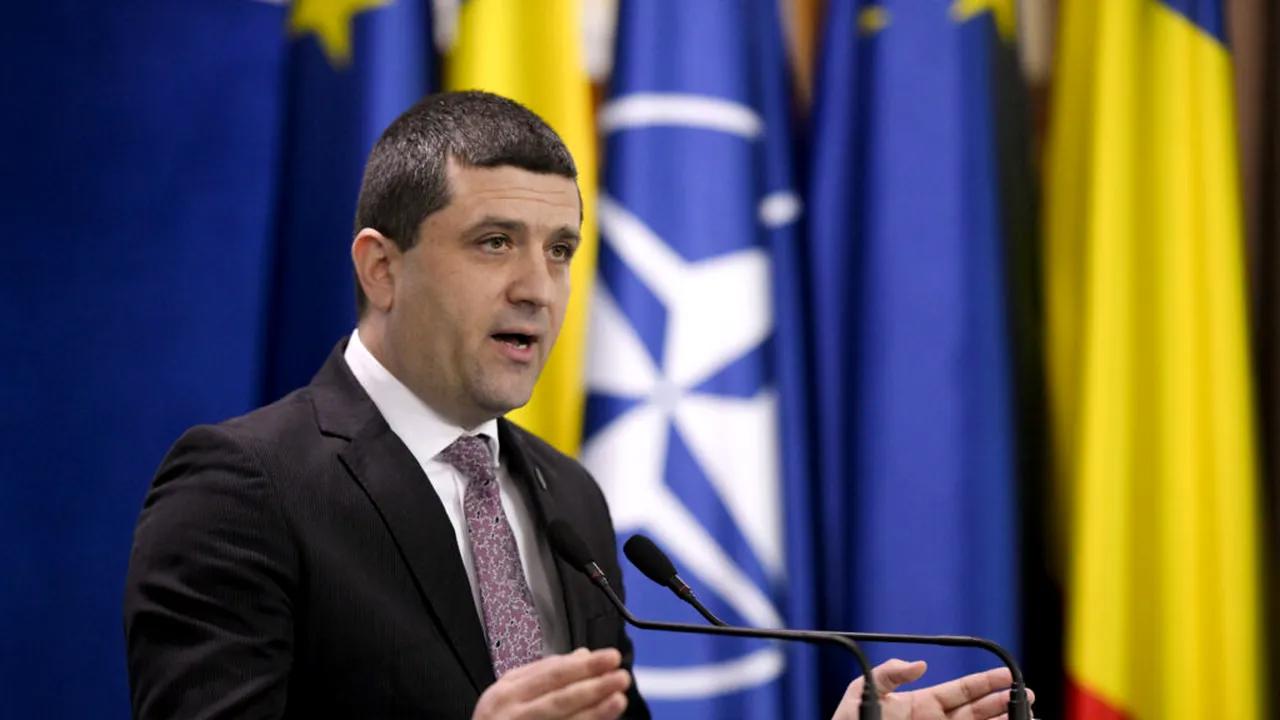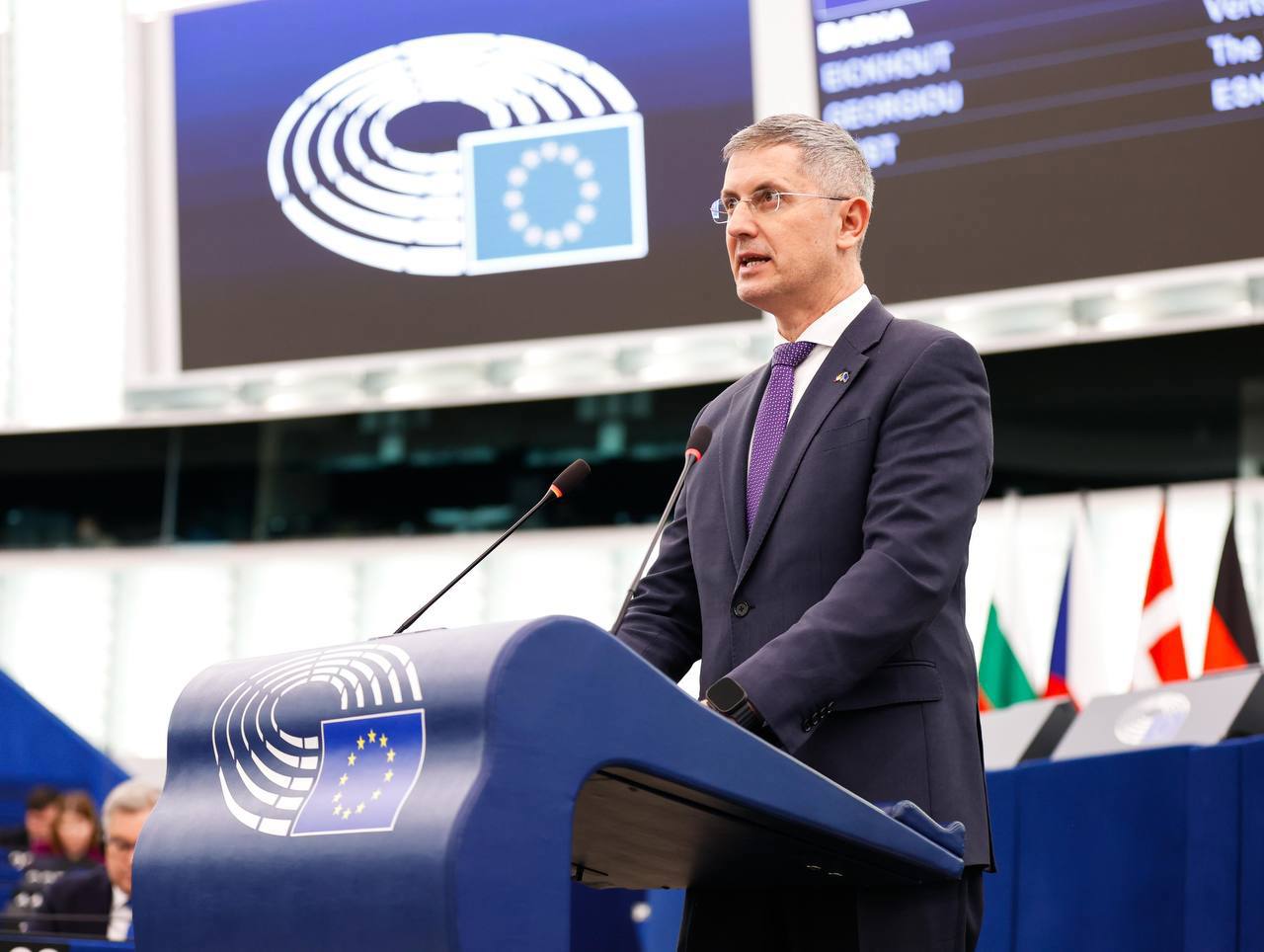Experts: Elections in Romania, a key test for Moldova’s EU path

The presidential elections in Romania, scheduled for this Sunday, are more than just a national democratic exercise; they will significantly shape the country's external relations amidst a tense regional environment in Eastern Europe. Experts in foreign policy and security caution that the election results could impact the future European integration of the Republic of Moldova and Romania's strategic role within the EU and NATO. These insights were discussed during the program IN CONTEXT on Moldova 1.
Tudor Curtifan, editor-in-chief of DefenseRomânia, claims that Romania's political direction in its relationship with the European Union could be seriously affected.
A possible victory for George Simion would take Romania off its pro-European path and be bad news for the Republic of Moldova. On the other hand, a victory for Nicușor Dan would provide predictability in Romania's foreign policy (...) Everything depends on what happens on Sunday at the vote. For the first time in Romania, it is challenging to anticipate the election's outcome.
Romanian MEP Nicu Ștefănuță notes that the stakes of the Romanian elections are enormous for the Republic of Moldova:
I would like Romania to remain a European country. A man not allowed to come to Chișinău cannot negotiate the accession of the Republic of Moldova and will most likely block the process. Our brothers must enter the European Union in the next five years. There is a window of opportunity – after that it closes. If George Simion wins, we will not leave the EU, but we will be marginalized. Without real negotiating power, we will not solve anything.
Security expert, Ștefan Bejan emphasized the important role of the diaspora, including Moldovans with Romanian citizenship, in the second round of the elections:
The diaspora vote represented approximately 10% of the total votes. In the second round, it will matter a lot. Over 90,000 people voted in the first round in the Republic of Moldova. In the second round, this figure will most likely be exceeded, and these votes could matter enormously in the final result, because Nicușor Dan will obtain over 80% in the Republic of Moldova (...) George Simion has publicly declared that he hates and does not recognize the state of the Republic of Moldova. There is a risk that Simion, as President of Romania, will use his veto power to block the European path or even the accession of the Republic of Moldova. It is a significant risk.
In the final race for head of state on May 18, George Simion, the leader of the far-right AUR party, is competing against Nicușor Dan, an independent candidate and the mayor of Bucharest. According to the latest polls, the race is expected to be close, with both candidates having nearly equal chances. Notably, George Simion was absent from most of the electoral debates.
Political analysts emphasize that the stakes in this second round extend beyond Romania's borders, as the outcome could significantly impact the country's relationships with the European Union and NATO. An analysis by Reuters suggests that a victory for Simion could destabilize Romania—an EU and NATO member—and may have broader repercussions within the EU. Voter turnout and the choices made by the Romanian diaspora will be critical factors in this decisive election.
The electoral campaign for the second round began on May 9 and will conclude on May 17 at 07:00. On May 18, over 19 million Romanian citizens, including approximately one million from the diaspora, are expected to cast their votes.




